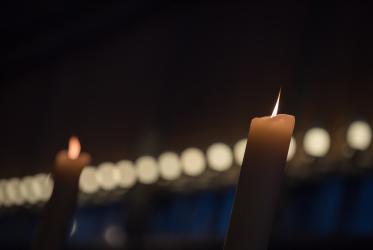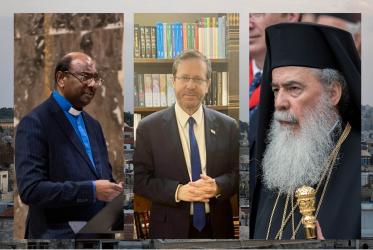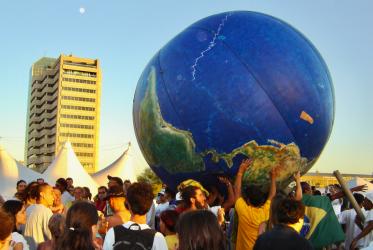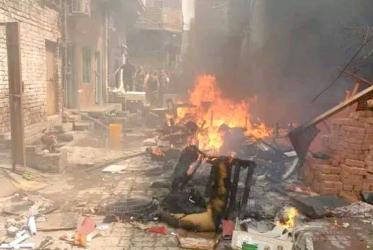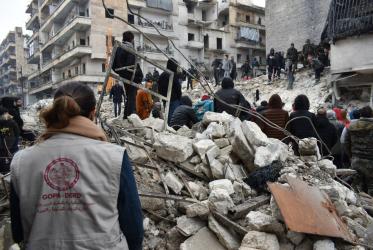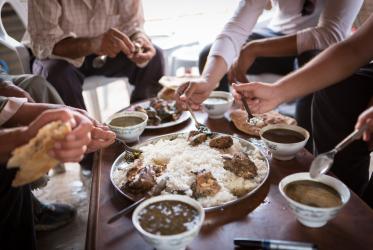Displaying 1 - 20 of 41
03 April 2024
Words of steadfastness ring from the rubble
21 March 2024
WCC calls for immediate end to brutal violence in Gaza
30 December 2023
Embracing spirituality: a global response to climate challenges
17 November 2023
Climate crisis fuels existing water injustice
27 October 2021
WCC Eco-School begins in Thailand
07 November 2019
Dr Saïd Ailabouni: God is on the side of rejected, oppressed, occupied
12 September 2019
WCC represented at G20 Interfaith forum in Tokyo
13 June 2019


